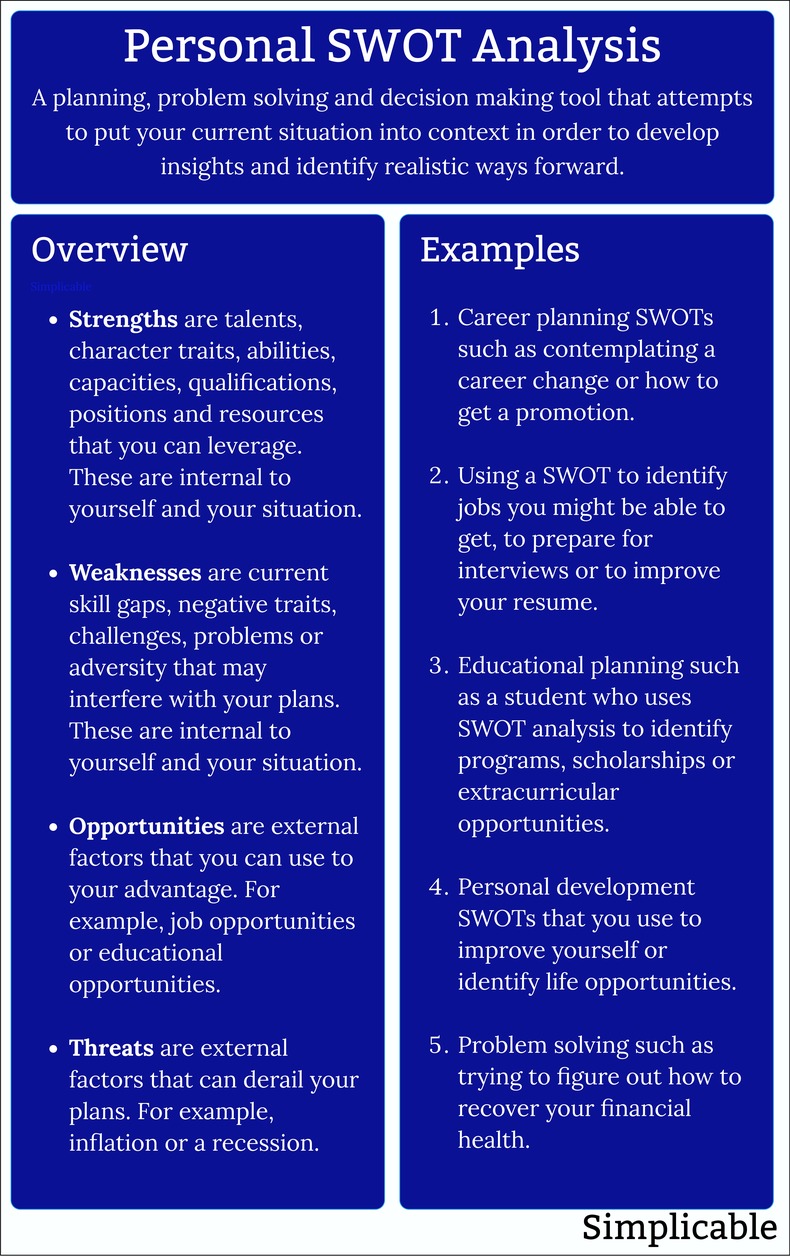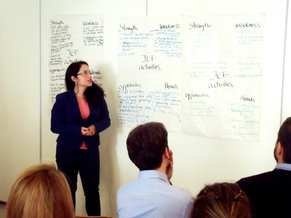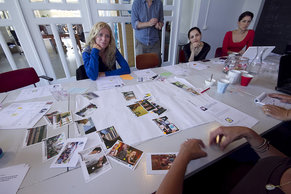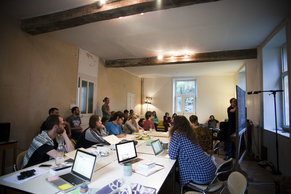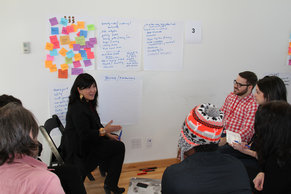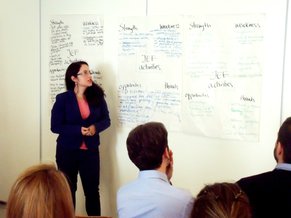
Strengths
List your strengths including talents, character traits, relationships, assets, positions, social status and knowledge.Ambition | Bravery |
Business Connections | Businesses You Own |
Communication Skills | Compassion |
Creativity | Cultural Capital |
Diligence | Family |
Friendliness | Friends |
Honesty & Candor | Know-how |
Knowledge | Languages |
Motivation | Openness |
Optimism | Personal Assets |
Politeness | Pragmatism |
Productive | Professional Relationships |
Professional Reputation | Realism |
Responsible | Roles & Positions |
Self-Control | Sense of Duty |
Social Skills | Talents |
Technical Skills | Tolerance |
Trust | Work-Ethic |
Weaknesses
A candid list of areas where you feel that you are lacking or at a disadvantage. If you are doing a personal swot for yourself, try to use defensive pessimism whereby you take a critical view of your current position. A personal swot that is shown to others may list superficial weaknesses such as talents you wouldn't be expected to have anyway.Bad Habits | Beginner |
Character Flaws | Closed / Reserved |
Disadvantaged | Disconnected / Disengaged |
Family Instability | Fears |
Geographically Isolated | Give Up Easily |
Health Problems / Injuries | Housing Quality |
Impulsive | Inconsistent / Often Change Mind |
Indecisive | Lack Industry / Domain Connections |
Lack Know-how / Knowledge | Lack Skills |
Lack Tools | Lack of Commitment |
Lack of Connections | Lack of Education |
Lack of Experience | Lack of Financial Resources |
Lack of Imagination | Lack of Technical Resources |
Lack of Time | Language Proficiency |
Leadership Experience | Life Obstacles |
Low Attention to Detail | Low Cultural Competence |
Low Motivation | Low Work Ethic |
Negative Relationships | New to a Business / Profession |
New to a Culture | Pessimistic |
Poor Communication Skills | Poor Performance |
Poor Routines | Poor Social Skills |
Poverty | Public Speaking Skills / Fears |
Reputation Damaged | Sensitive / Lack Grit |
Socially Isolated | Unfriendly |
Unrealistic | Untrusting |
Waste Time |
Opportunities
Brainstorm things you could do. This is a broad list that includes all possibilities, even where they are unlikely.Adopt a Habit / Routine | Attend Events |
Build Relationships | Calculated Risk Taking |
Change Lifestyle | Cultivate Optimism / Pragmatism |
Cultivate Peace and Understanding | Cultural Participation |
Defeat a Bias | Deliver Work |
Design / Redesign Processes | Develop Character Strengths |
Develop Know-how | Develop Knowledge of Performance |
Develop Tools & Capabilities | Develop a Skill |
Diy Projects | Epic Experience |
Experiment | Face a Fear |
Improve Decision Making Process | Improve Diligence / Focus / Attention to Detail |
Improve Health | Improve Problem Solving Process |
Improve Quality of Life | Improve Work Performance |
Improve Work Quality | Improve Work Throughput |
Improve Work Turnaround Time | Make a Decision |
Network | Pursue Altruism |
Pursue Education | Pursue Knowledge |
Pursue Social Inclusion | Pursue Wellness / Fitness |
Pursue a New Career Path | Pursue an Interest / Hobby |
Read | Refine / Master a Talent |
Research | Show Gratitude |
Solve a Problem | Start a Business |
Study | Sustain / Improve Relationships |
Take On Action Items | Take On Responsibilities |
Travel | Try to Be Creative |
Threats
Threats are things that could derail your plans and keep you from your goals. These are potential future problems that are essentially risks.Accidents | Business Failure |
Competition | Conflict |
Crime | Discrimination |
Economic Problems | Family Demands |
Financial Losses | Health Problems |
Lack of Funding | Lack of Support |
Lack of Time | Legal Disputes |
Performance Failures | Personal Losses |
Politics | Project Failure |
Rumors & Misinformation | Social Exclusion |
Social Stability | Strategy Failure |
Unplanned Expenses |
Summary
A personal SWOT analysis is a planning tool that can be used to identify your current context in detail. This can then be used to identify possible actions that you can take to achieve goals in areas such as career, education or personal development.